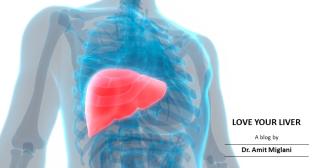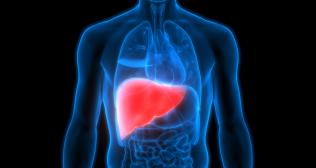Power Spiral Enteroscopy: This Advanced Diagnostic, Interventional Tool Can Peep & Clear Small Intestine Disorders
Power Spiral Enteroscopy: This Advanced Diagnostic, Interventional Tool Can Peep & Clear Small Intestine Disorders
Small intestine also known as small bowel is a vital part of the human body that plays a major role in the absorption of nutrients and minerals into the blood stream. Located between stomach and large intestine, small intestine consists three distinct regions – duodenum, jejunum and ileum and it receives bile and pancreatic juices via pancreatic duct for stimulating the process of digestion.
Small intestine breaks down proteins into peptides, amino acids, lipids into fatty acids and other components, carbs into simple sugars or glucose for better absorption. It is also where the immune system of the body gets all its support from and is home to gut flora (good bacteria) that contributes immensely to the gastrointestinal health.
Though termed as a small intestine in medical terms, this complex organ that performs multiple functions can vary when it comes to length, from person to person. If often depends on the person’s height and is noted anywhere between 3m to 5m. Health conditions related to small intestine are as complex as its functions and until recently it has been one of the organs difficult to access for performing minimally invasive diagnostic and interventional procedures.
Gastroenterologists find Obscure Gastrointestinal Bleeding (OGIB) as one of the most challenging disorders owing to its evasive nature and difficulty involved in pinpointing on the exact source of bleeding. Conventionally, the patients undergo endoscopy and colonoscopy in diagnosing the cause of bleeding but in few cases, the identification of the source could be a difficult task.
Gastroenterologists may recommend enteroscopy to diagnose and treat issues related to small intestine.
What Is Enteroscopy?
Enteroscopy is both a diagnostic and interventional tool that helps the medical expert in assessing the internal functioning of the digestive tract besides treating problems. Under this procedure a thin, flexible tube with a camera at the end gets inserted called endoscope inflates one or two balloons for providing a clearer view of the esophagus, stomach and small intestine. However, in few cases only a section of small intestine can be seen, making diagnosis and treatment a tough challenge.
This is also a time-consuming procedure which takes up to 1 to 3 hours, making it difficult for the patients.
What Is Power Spiral Enteroscopy?
In order to make the entire procedure easy for the patients and to aid doctors, Fortis Health Care has recently introduced Power Spiral Enteroscopy, a motorised type of endoscope, equipped with a special motor which goes into the 22-ft long small intestine and inspects the insides of the intestine. It not only aids in treating complex conditions in the small intestine and improves diagnosis and patient outcomes for chronic and complex conditions.
How Does Power Spiral Enteroscopy Help?
A Power Spiral Enteroscopy can access the internal part of small intestine, enabling the surgeon to manoeuvring deeper and giving a clear picture of the organ function
It also facilitates exact positioning of the endoscope during interventions and is easy to use other endotherapeutic devices along with it.
In case of lesions, the surgeon would be able to reach them more accurately and the entire procedure would not take more than 45 minutes.
With Power Spiral Enteroscopy, the surgeon would be able to arrest bleeding in the small bowel at a faster pace and can even remove foreign bodies, if any.
Who Can Opt For A Power Spiral Enteroscopy?
Doctors would recommend this highly advanced procedure if the patient is suffering from tumours in the small bowel, clogged passages in the intestine, abnormal gastrointestinal bleeding, severe diarrhea with no apparent reason, severe malnutrition, intestinal damage due to radiation, high white blood cell count.
Know More: https://fortisbangalore.com/speciality/gastroenterology-hospitals-bangalore



















